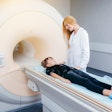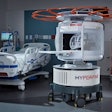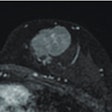Dear MRI Insider,
As radiologists and physicians know, MRI scans are expensive and can take a long time to perform. That's all the more reason to avoid having to repeat exams.
As an MRI Insider, you have an exclusive first look at a study that found the most common causes for repeated MRI exams are patient movement and the use of incorrect technical parameters by the diagnostic radiologic technologists.
In addition, it seems that senior technologists are just as prone to make mistakes that lead to repeated MRI exams as their less experienced colleagues. Click here for the details.
In other noteworthy features, the overall Medicare MRI utilization rate has slowed since 2008, due in part to policymakers' focus on reducing unnecessary healthcare costs and radiologists' efforts to educate their colleagues on appropriate imaging use, according to a new study. The researchers from Thomas Jefferson University in Philadelphia discovered that MRI utilization in the Medicare population reached its peak of 189 per 1,000 in 2008, but has slipped to 183 per 1,000 in 2010, which also represents a decrease from 2009.
MRI reimbursement issues also are an area of concern for freestanding imaging centers in 2013. Because of adjustments made by the U.S. Centers for Medicare and Medicaid Services (CMS) in its assumptions about room use time for 2013, reimbursements for CPT code 73721 (lower extremity joint MRI) and 73221 (upper extremity joint MRI) have been cut by 30%.
Also in this edition, read about a new study that found MRI without oral contrast is useful for evaluating pregnant patients suspected of having appendicitis, and should be used as an adjunct imaging test in their clinical workup. Adding an MRI exam when appendicitis was suspected in pregnant patients decreased the negative laparotomy rate for these patients by 47%, without a significant change in perforation rates.
And, using a surface-based MRI method to measure cortical thickness, Italian researchers found that migraine headaches may be related to brain abnormalities present at birth and other abnormalities that develop over time. The study's findings could be among the first steps to better confirming prognosis and developing effective treatment for the more than 30 million people estimated by the World Health Organization to suffer from migraine headaches.
Be sure to visit the MRI Digital Community next week, as AuntMinnie.com reports daily from the annual meeting of the American Roentgen Ray Society (ARRS) in Washington, DC.

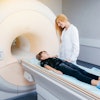

.fFmgij6Hin.png?auto=compress%2Cformat&fit=crop&h=100&q=70&w=100)

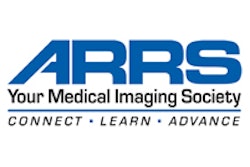


.fFmgij6Hin.png?auto=compress%2Cformat&fit=crop&h=167&q=70&w=250)
